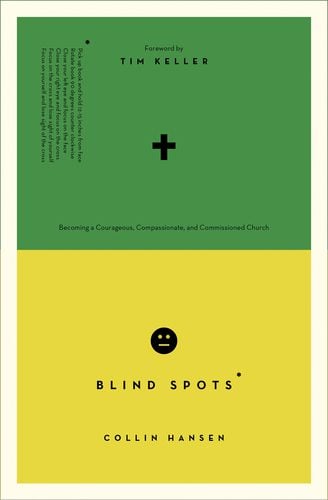 If you were to ask me what the most important characteristic is in a church, I would tell you it is what the church believes. My bias leans toward churches leading with theology. They need to know what they believe, why they believe it, and be upfront about it. This makes perfect sense to me because I believe God has spoken clearly in his word and we need to be serious about what he has said. Then when I look at church history I see how a lack of seriousness about doctrinal truth leads the church into compromise and decline. Then church history shows other times when God’s people took his truth seriously, proclaimed it boldly, and saw large numbers of people come to faith in Jesus. The primary place of good theology seems obvious to me and have a difficult time understanding why anyone would say anything else is the most important element in a church.
If you were to ask me what the most important characteristic is in a church, I would tell you it is what the church believes. My bias leans toward churches leading with theology. They need to know what they believe, why they believe it, and be upfront about it. This makes perfect sense to me because I believe God has spoken clearly in his word and we need to be serious about what he has said. Then when I look at church history I see how a lack of seriousness about doctrinal truth leads the church into compromise and decline. Then church history shows other times when God’s people took his truth seriously, proclaimed it boldly, and saw large numbers of people come to faith in Jesus. The primary place of good theology seems obvious to me and have a difficult time understanding why anyone would say anything else is the most important element in a church.
In his new book Blind Spots, Collin Hansen addresses Christians like me who don’t understand why other Christians don’t emphasize the things I emphasize. He explains how Christians have often vilified each other because we have failed to see our different emphases and appreciate each other instead of biting and devouring one another. “We all have blind spots. It’s so easy to see the faults in someone else or in another group but so difficult to see the limitations in ourselves. Unless you learn to see the faults in yourself and your heroes, though, you can’t appreciate how God has gifted other Christians.”
Hansen explains three different types of Christians and the aspects of Christian faithfulness they emphasize. Courageous Christians cling to sound doctrine and godly living, not backing down in the face of societal pressure. Commissioned Christians understand the need to share the Gospel with every person in a way that connects with them. Compassionate Christians know the needs of people in our culture and are ready to meet those needs.
The bulk of Blind Spots deals with these three different types of Christians. Hansen explains the unique contribution each of these emphases makes within the Christian church, but also unpacks the blind spots the people in these groups will wrestle with. For example, in the chapter on courageous Christians, he helps the reader understand why courage is needed in as the church wrestles with our current cultural climate. Then he leads courageous Christians to understand the particular temptations they will face because of their particular bent. Courageous Christians face the temptation to idolize eras in the past and not see their heroes as flawed and fallen men like the heroes of Scripture. So courageous Christians must understand these temptations, praying and seeking that God would temper our courage with humility and grace.
The call to embrace these three varieties of Christian emphases should not be mistaken as a call to abandon doctrinal distinctive in the name of going along and getting alone. In the first chapter Hansen states, “when you lose the distinctive doctrines of Christianity- starting with the resurrection of Jesus- you lose everything.” He fights the assumption that we have to choose between biblical faithfulness, evangelism, or social justice. Instead he shows how we must have a biblically faithful, evangelistically zealous, and need meeting Christianity. No one is asked to leave doctrinal commitments at the door, but they are called to hold those commitments with charity recognizing which ones are essential to cooperation with other Christians and which ones are not.
Blind Spots by Collin Hansen reminds all Christians of an important truth- we need each other. Courageous Christians need to be reminded not to sit in the corner defending the truth, but to proclaim this truth in word and deed so people will be impacted by the Gospel. Compassionate Christians must remember in their acts of charity to keep the Gospel at the forefront of what they do. Commissioned Christians should hear the call to focus on the care of the whole person and not just the soul, remembering at the same time not to water down the message of the Gospel so more people will appear to accept it. The only way Christians will remember these things is by listening to the emphases of other followers of Jesus. The church is a body with many members, and we need all of those members playing their part for the sake of the Gospel. Not every person has the same calling or is passionate about the same issue or cause; but we have one great passion, the glory of God in Christ, to which we subordinate all of our other passions.
Christians who are tempted to snark, suspicion, and sarcasm toward other Christians will benefit from the message of Blind Spots. We need to be reminded we wrestle with temptations from our emphases, and our brothers and sisters can help us see them so our lives bear greater fruit for the glory of God.
You can read my other book reviews and notes here.
(I received a copy of Blind Spots in exchange for an honest review of the work.)











